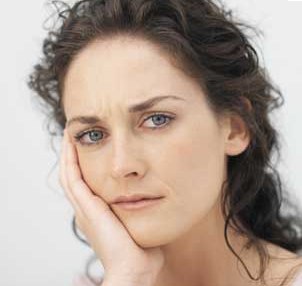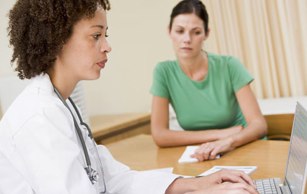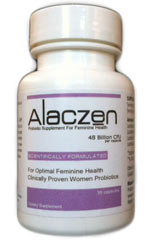Facts About Vaginal Thrush
 An extremely uncomfortable, and often painful, condition at times for lots of women, Candidiasis (vaginal thrush) is treatable with several readily available products. Many experts estimate that 75% of women will encounter vaginal thrush symptoms at some time in their life. So, let us look at the facts.
An extremely uncomfortable, and often painful, condition at times for lots of women, Candidiasis (vaginal thrush) is treatable with several readily available products. Many experts estimate that 75% of women will encounter vaginal thrush symptoms at some time in their life. So, let us look at the facts.
Candida is just a yeast germ which has been permitted to reproduce without restriction and form into the condition called thrush.
Candida is forever present in and on our bodies and its’ quantity is usually controlled by different bacteria. The normal areas are within our guts, inside and on the genital area, beneath the armpits, or any area where it is moist and warm. Usually, other friendly bacteria will limit this germ but, should the balance be disrupted, the candida will reproduce without limit and thrush will form, and begin to aggravate the infected areas.
Generally, the most usual symptoms of thrush are intense itching, along with a sensation of burning and raw soreness. A discharge is also quite normal for many sufferers, but this is not always the case. A discharge will usually have a white, creamy texture and can be either thick or quite watery and thin. Urination can additionally be rather painful, as well as sexual intercourse.
Remarkably, there are no actual known causes of thrush, but the factors that can aggravate it are well documented:
* Consuming pills for birth control
* A weakened immune system
* Menstruation (Periods)
* Becoming pregnant
* Poorly controlled Diabetes
* Consuming steroid treatments, especially long term
* Having Sex – although thrush is not considered a STD
All of these factors have an impact upon the friendly bacteria that controls the levels of Candida. Primarily, these factors will normally lessen the quantities of the friendly bacteria and thus render them incapable of keeping the candida amounts restricted.
There are several ways of trying to stop thrush from starting, these include:
* Wear loose jeans, trousers etc, along with loose fitting underwear
* Wipe carefully after using the toilet
* Don’t wash the vagina area too much – being overly hygienic often destroys essential bacteria
Regrettably for many women, regardless of what precautions they take, thrush will still affect them and will do so regularly.
 Treatments for thrush generally come in tablet form that usually contain the anti fungal itraconazole or fluconazole substances. Other treatment types are creams and pessaries. Normally, such treatments work well and all symptoms will be gone within 3 to 7 days.
Treatments for thrush generally come in tablet form that usually contain the anti fungal itraconazole or fluconazole substances. Other treatment types are creams and pessaries. Normally, such treatments work well and all symptoms will be gone within 3 to 7 days.
Each of the treatments above are accessible in stores without the requirement for any prescriptions, although for women who are pregnant, tablets and other medication types might not be advised.
For roughly one in five females, the treatments above will not work and medical examination will be necessary and, for several women, thrush will reappear regularly. For people who suffer with thrush more than 4 times per year, this is regarded as complex or recurrent thrush and is not easy to treat.
Recommended Thrush Treatment
 Probiotics have been studied extensively in recent times with advancement in medication employing the use of high strength friendly bacteria calming and reducing the symptoms significantly.
Probiotics have been studied extensively in recent times with advancement in medication employing the use of high strength friendly bacteria calming and reducing the symptoms significantly.
Arguably the best example of a high strength probiotic supplement is Alaczen. A commercial product that can be purchased without the need of a prescription.
More about Alaczen
______________________________________________
